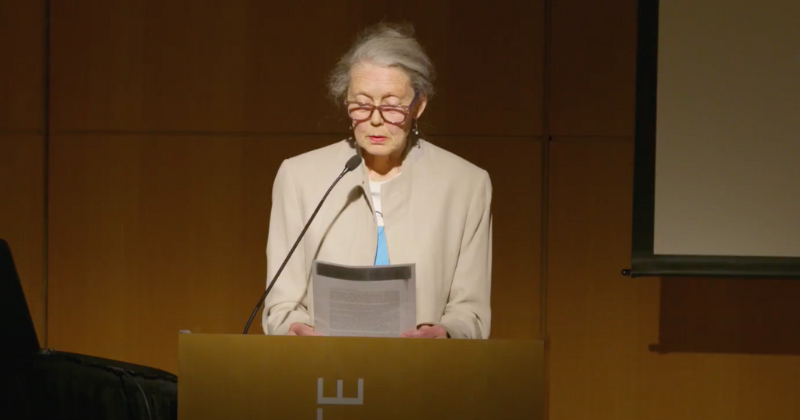
The Anne Carson Twitter discourse, explained in brief (which she would hate).
There was no prior announcement, but an assessment took place yesterday on the internet of our collective worth, a kind of Internet Speed Test for our souls.
New Yorker writer Hannah Williams posted a screencap of Anne Carson’s 2017 POEM “Saturday Night As An Adult,” with the caption: “Think about this a lot” (editor’s note: the choice not to include a period perhaps emphasizing the open-ended nature of this thought). The poem captures a series of disappointments at a dinner out with second- and third-tier friends.
https://twitter.com/hkatewilliams/status/1665763486549307392
Like a weather balloon lofted into the sky, or a chubby wombat awakening with a new honing beacon attached to its ankle and rushing off into the bush, the scene was now set for The Study to begin.
As of 10 a.m. EDT, June 7, Williams’ tweet had been retweeted 928 times, quote-tweeted 583 times, and liked almost 10,000 times, indicating 928 instances of people finding an outsized resonance in the original tweet, and 583 instances of people hoping to correct the discourse, which ran quickly off the rails into a series of what Carson might term “yell factions.”
Critiques of the short poem about getting dinner at a noisy restaurant and finding bones in your fish fillet ranged from “kill Anne Carson?” to “wow that’s crazy has the author ever thought about letting joy into their life.” Generally speaking, a common theme was “can’t we just have a nice dinner here on Twitter, Anne Carson?”
Critiques of the critiques argued for the salvaging of context amid anthropogenic context-decline. I note, for example, Carson’s formal choices around line breaks and choice in the poem to use the royal “we” to engage the reader (seemingly, it worked). The viral moment came as the government issued a Code Red for air quality across much of the Eastern U.S., and as scientists warned that Arctic ice-melt was approaching a tipping point.
“I think it’s about the Michael Cera movie,” said the internet in utter earnestness.
The conversation continued into June 7, showing no signs of letting up despite the orange skies over Twitter hotspot New York City.
“Anne Carson should go to therapy and work on setting boundaries” offered Lauren Oyler in presumed disappointment at the level of discourse we have to work with here.
Anne Carson should go to therapy and work on learning to set boundaries
— Lauren Oyler (@laurenoyler) June 6, 2023
As to Anne Carson herself, the prolific Canadian poet and classicist appears not to be on Twitter at all (you’ll have to follow @carsonbot instead, I suppose, or read this appreciation for Autobiography of Red).
In a good appraisal of the aptitude Carson’s poetry has for Twitter, Dirt’s Terry Nyugen wrote, “There seems to be a Carson verse suitable for any ruminative occasion (“Is it a god inside you, girl?”) or random outcry (“[scream] [scream] [scream] for my ruined city”). A line from An Oresteia can be repurposed into an ecstatic anti-work mantra: “Gods! Free me from this grind!” No other contemporary poet inspires such a rabid rush of retweets.”
In other words, this won’t be the last time we fail a simple comprehension test.
It’s possible that even Anne Carson has had enough of the Anne Carson discourse, writing in a new poem “No You May Not Write about Me” in the London Review of Books that:
I should go in. I go in. I say, You are the worst thing I know I
can’t breathe around you the world is more than this I am more than you put on your
black coat we’re going out. We go out.
With prescient timing, Carson obtained Icelandic citizenship last year, all the better to escape the encroaching QT-storm.
Janet Manley
Janet Manley is a contributing editor at Literary Hub, and a very serious mind indeed. Get her newsletter here.



















